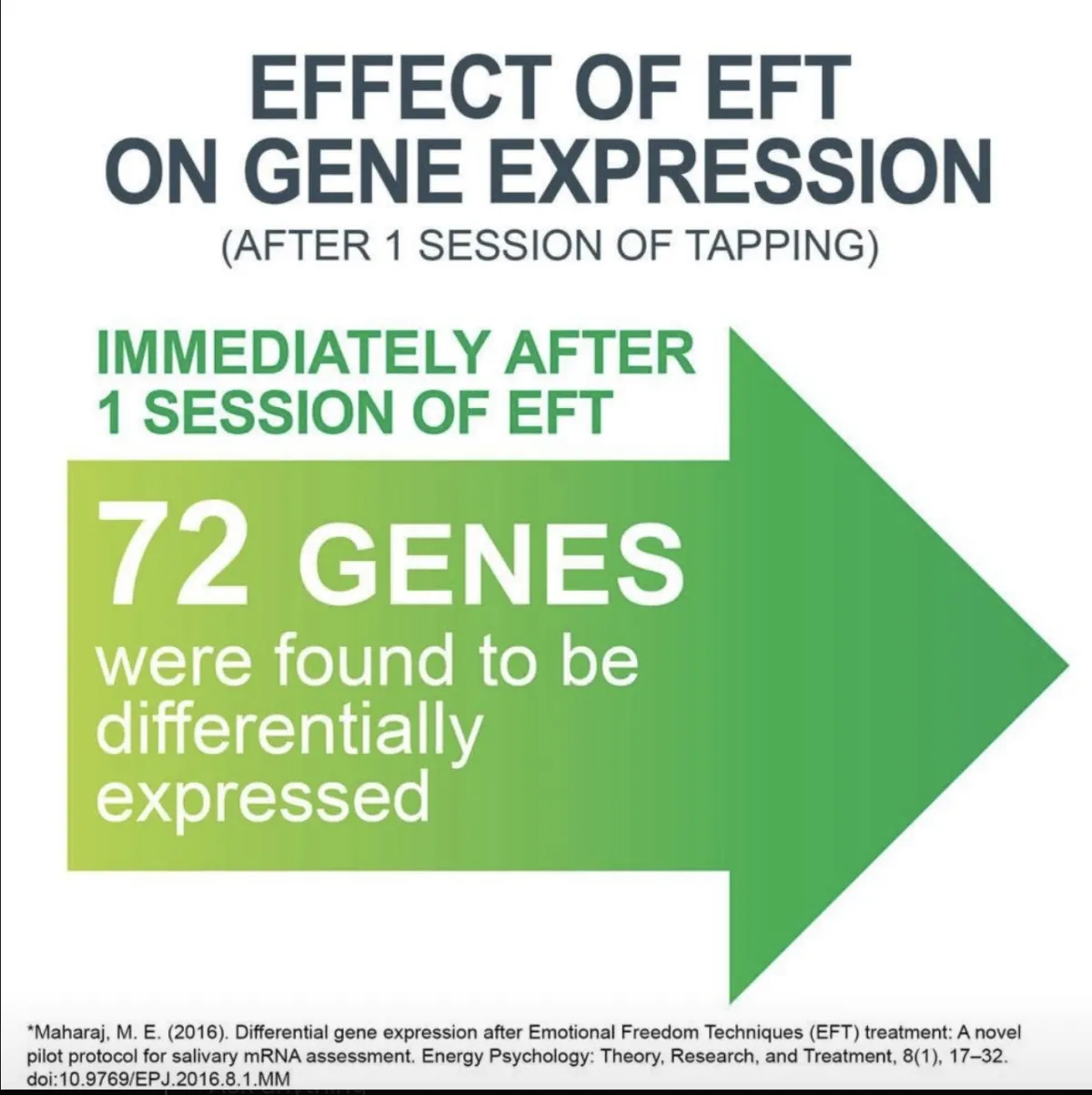The Science Behind EFT: Why Tapping Works
Looking to Science to Understand the Effectiveness of EFT
When I first discovered EFT (Emotional Freedom Techniques), what struck me most was how quickly people could shift — fear softening, stress lifting, even long-held grief beginning to release. But what’s even more exciting is that science now backs up what so many of us feel: EFT doesn’t just help emotionally, it changes the body at a physical level.
Many pioneers in mind-body science — including Dr. Bruce Lipton, Gregg Braden, and Dr. Joe Dispenza — have highlighted how our thoughts and emotions influence the body. EFT (Emotional Freedom Techniques) builds on this understanding by offering a practical tool to reduce stress and shift energy in the moment. I am also a big fan of Tony Robbin's work too - reading Awaken The Giant Within helped me with depression which he suggests is just a state of mind, influenced by our thoughts and emotional patterns which of course EFT can help with.
What the Research Shows
1. EFT and Genes
In 2016, a study by Maharaj found that after just one session of EFT, 72 genes were differentially expressed. These genes are connected to:
Boosting immunity
Regulating inflammation
Managing stress responses
This means tapping can literally change how our cells behave — supporting healing from the inside out.
2. EFT and Blood Cells (Click below to see research just about blood)
Other research has shown that EFT influences the expression of blood cells, suggesting that tapping directly impacts the body at a cellular level. It’s not just “in your head” — it’s happening throughout your whole system.
3. EFT and Cortisol (the stress hormone)
In a landmark study (Church et al., 2012), participants who tapped for one hour saw cortisol levels drop by 24%. By comparison, traditional talk therapy reduced cortisol by only 14%. Lower cortisol means calmer nerves, a clearer mind, and a body that isn’t constantly in “fight or flight.”
Soften and Flow: Relieve Stress with EFT Freedom Spells (spells were created by Silvia Hartmann): https://eftinternational.org/soften-and-flow-relieve-stress-with-eft-freedom-spells/
4. EFT and the Brain
Brain scans have shown that EFT calms the amygdala, the part of the brain that sets off the alarm bells when we’re anxious or triggered. This allows people to safely recall traumatic memories without being overwhelmed — an incredible breakthrough for trauma recovery.
Want to Dive Deeper?
Here are some trusted resources if you’d like to explore the science of EFT further:
EFT Universe Research Library (Dawson Church) https://eftuniverse.com/research-studies/eft-research/?utm_source=chatgpt.com and Looking to Science to Understand the Effectiveness of EFT Tapping https://eftinternational.org/looking-to-science-to-understand-the-effectiveness-of-eft-tapping/
Energy Psychology Journal https://www.energypsychologyjournal.org/?utm_source=chatgpt.com
Clinical Trials Database (search “Emotional Freedom Techniques”) https://clinicaltrials.gov/?utm_source=chatgpt.com
Why This Matters
For me, EFT has always been more than a technique — it’s been a lifeline. But having the science to back it up helps people feel safe in trying it for the first time.
When you tap, you’re not just calming your mind — you’re creating measurable, positive changes in your body. That’s the power of EFT.


FAQS
Do I need a practitoner?
Not at all — you can do EFT by yourself using the tapping points and some simple phrases. But if you’re working through something very deep or painful, a practitioner can guide you safely and help you go further.
What if I get emotional while tapping?
That’s actually a good sign — it means the emotion is moving and being released. If it feels overwhelming, just pause, take a breath, and keep tapping gently until you feel calmer.

How often should I do EFT?
As often as you like. Some people use it daily as part of their self-care, others only when something comes up. Even a few minutes can make a difference.

Can I EFT make things worse?
Sometimes feelings rise up before they ease. That can feel uncomfortable in the moment, but it usually settles quickly. If it ever feels too much, stop, breathe, drink some water, and return when you’re ready
